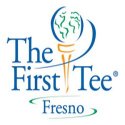 EDITORIAL - Individual elected officials are exercising their right to free speech when they cast their votes — even if those votes might be the result of corruption or based in a conflict of interest, the California Supreme Court has decided. The opinion, handed down Monday, includes an in-depth analysis of the State’s anti-SLAPP (Strategic Lawsuit Against Public Participation) law. The law is designed to end lawsuits that chill the right to speak on issues of public concern.
EDITORIAL - Individual elected officials are exercising their right to free speech when they cast their votes — even if those votes might be the result of corruption or based in a conflict of interest, the California Supreme Court has decided. The opinion, handed down Monday, includes an in-depth analysis of the State’s anti-SLAPP (Strategic Lawsuit Against Public Participation) law. The law is designed to end lawsuits that chill the right to speak on issues of public concern.
The opinion in City of Montebello v Vasquez stems from an allegedly tainted waste disposal contract for the City of Montebello. Amid allegations of votes purchased with campaign contributions, recall elections and a referral to the District Attorney, a private citizen sued the City to invalidate the contract under Government Code section 1090, asserting it was the product of bribery — campaign contributions offered and then delivered.
Just days before a judgment in the citizen’s suit voiding the contract, the City, under new leadership, brought its own lawsuit under section 1090 against the three now ousted Council members who voted for the contract and the now retired city administrator. The City’s suit sought to void the contract and disgorgement of the campaign contributions the Council members had allegedly received to purchase their votes.
Those defendants brought an anti-SLAPP motion in the trial court seeking to have the City’s lawsuit dismissed, alleging it was an effort to punish them for exercising their right to free speech in connection with a matter of public interest related to their official duties. The City countered the anti-SLAPP motion by asserting the “public enforcement” exemption, which applies when a lawsuit is brought as an enforcement action on behalf of the People of the State of California. The trial court denied the motion. It found the “public enforcement” exception did not apply because the suit was not brought in the name of the People by a public prosecutor and that the defendants’ acts were protected activity under the law. But, the court found that the City established it would likely prevail on the merits of its lawsuit. An appellate court agreed the “public enforcement” exemption did not apply, but held the defendants’ votes on the contract were not protected activity under the law and, therefore, the anti-SLAPP statute did not apply. Thus, it upheld the trial court’s denial of the anti-SLAPP motion, but for a different reason. The Supreme Court granted review.
On the issue of public enforcement, the Court found that the exemption only applies to actions brought by a public prosecutor in the name of the People and, thus, did not apply here.
But, were the Council members’ votes protected as an exercise of free speech? The Court concluded that the anti-SLAPP statute protects not only the exercise of free speech rights, but also “any act in furtherance of” those rights, which “extends beyond the contours of the constitutional rights themselves.” On the City’s argument that the votes were not valid, and, thus, not protected by free speech, the Court opined that those allegations were premature and did not apply to whether the Council members were exercising their constitutional rights. Because the appellate court had not reviewed the trial court's determination that the City would prevail on the merits of the lawsuit’s claims, i.e., that the votes were tainted, the matter was sent back to the appellate court to review that issue.














































